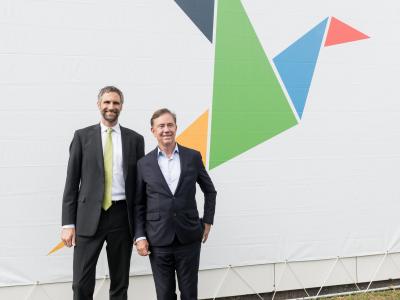
General HIU News
New Name Announced; Governor, Mayor Attend Event
October 19, 2021
President Joel N. Lohr stands with Connecticut Gov. Ned Lamont in front of the new symbol of Hartford International University, the ascending dove.
Join our mailing list
Keep up with all the latest happenings at Hartford International.

